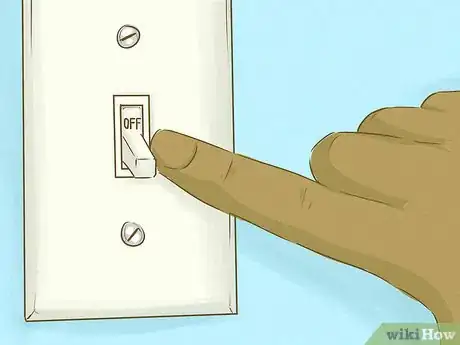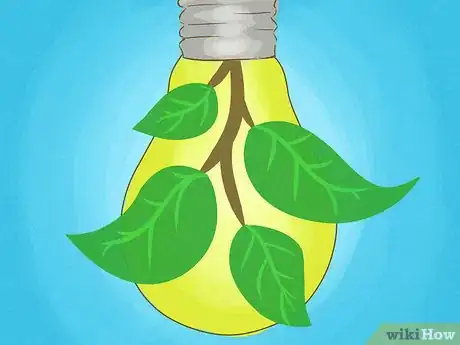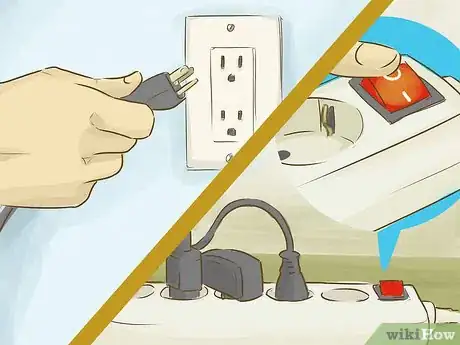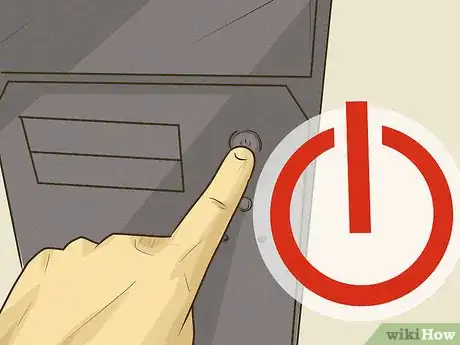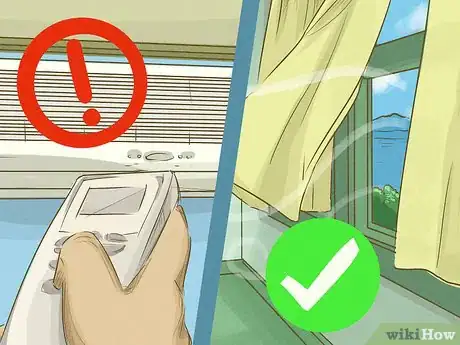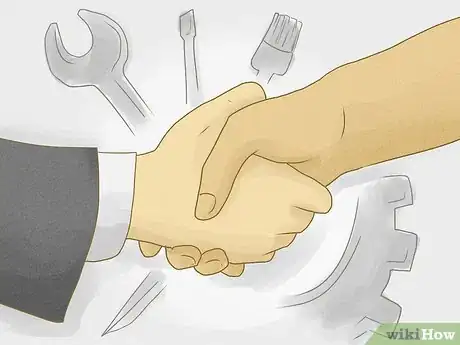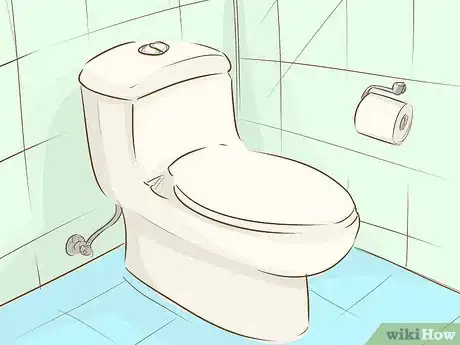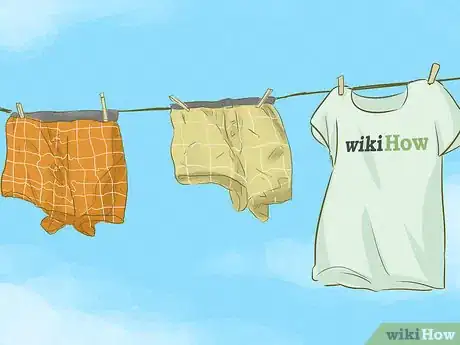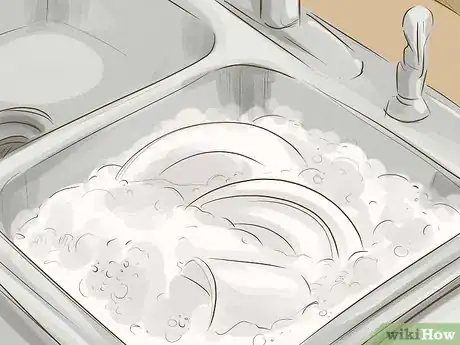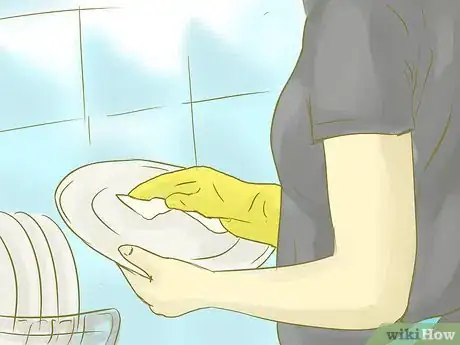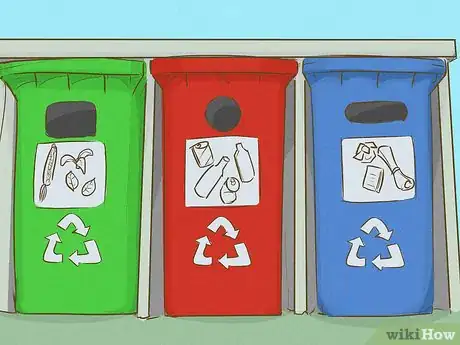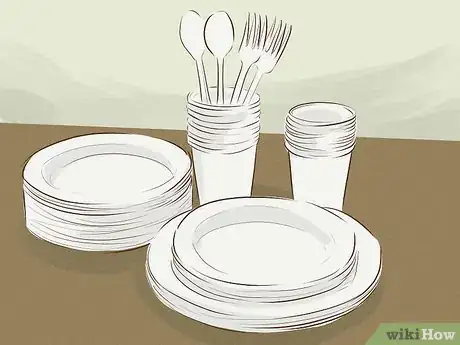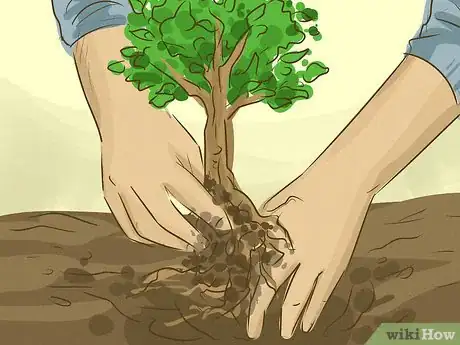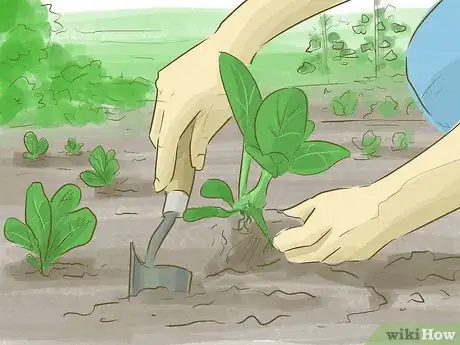This article was co-authored by April Jordan. April Jordan is a Sustainability Specialist and the Founder of The Ethical Edit, a blog dedicated to making ethical fashion and lifestyle changes accessible by sharing easy-to-digest sustainability information and ethical and sustainable brand reviews. With over five years of experience in sustainability and over five years in the marketing and communications field, April is passionate about using her skills to make the world a better place.
There are 12 references cited in this article, which can be found at the bottom of the page.
wikiHow marks an article as reader-approved once it receives enough positive feedback. In this case, 83% of readers who voted found the article helpful, earning it our reader-approved status.
This article has been viewed 477,888 times.
There are plenty of little steps that people can take at home to help save the environment. While the eco-footprint of each step is small, thousands of people doing the same thing can make a difference. In making some small changes to the way that you do things at home, you are gradually making a difference, even as an individual.[1]
X
Expert Source

Sustainability Specialist
Expert Interview. 22 September 2020.
We’ve put together a few tips, tricks, and ideas to help you get started!
Things You Should Know
- Turn off lights and electronics when they’re not being used, and switch to compound fluorescent light bulbs.
- Lower your thermostat in the winter, and use windows to regulate the temperature of your home.
- Take showers instead of baths, wash laundry with cold water, and air dry both clothes and dishes when possible.
- Start recycling and composting, get rid of disposable products, and use your bike more than you use your car.
Steps
Turn off the lights.
-
Always switch off the lights when you are not using them. Rooms that are lit with nobody in them are wasteful.
- In the era of solar, wind, and hydroelectric, nonrenewable options like fossil fuels are only used to offset demand for electricity. Since there are very few feasible ways for storing power for later use, electricity has to be generated, transmitted, and consumed all at the same time.
Switch to compound fluorescent light bulbs.
Power down your TV when you are not using it.
-
Believe it or not, up to 30% of power used by TVs is used while they are turned off. Simply buy power strips and switch them off when you’re not using them. They use far less energy while turned off.[2] X Trustworthy Source National Resources Defence Council Multinational environmental advocacy group focused on grassroots activism and legislative action Go to source
Turn off the computer every day.
-
Even if it feels like it is not making much of a difference, it is. You also reduce any risks of overheating or short-circuiting by turning computers off overnight.[3] X Trustworthy Source U.S. Department of Energy Official site for the U.S. Department of Energy, which provides resources related to energy safety, conservation, and efficiency Go to source
Lower the thermostat in the winter.
Regulate your home’s temperature with your windows.
-
Keep windows and doors closed properly to avoid the loss of heat in winter. Also, open the windows in summer. The cross breeze will often keep you cool and flushes out stale air (indoor air is often more highly polluted than the air outside). Importantly, the use of fresh air to cycle through your home saves the cost of running an air conditioner.
Pair ceiling fans with AC units.
Fill in any gaps around your home.
Insulate your home.
-
Insulation keeps the heat and cool on the correct side of your living space. Consider not only the ceiling but also the walls and under the floors.[4] X Research source
Replace gas stoves with induction.
-
The burning of gas like propane or natural gas releases its own greenhouse emissions and can be potentially dangerous. However, even when switched off and properly sealed, gas stoves still leak small amounts through the cooktop and pipes. While this amount is too small to start a fire, it does contribute to greenhouse emissions.[5] X Research source [6] X Research source
- Induction stoves are different from traditional electric stoves in the sense that the heating element is not located in the stove itself. In a traditional electric stove, the heating element switches on with varying amounts of power or switches on and off at various intervals to keep the pot warm. However, in an induction stove, the changing magnetic fields generated by the stove are used to induce eddy currents in the cookware, the result being that the cookware getting hot. They are considerably safer and greener than traditional gas and electric stoves.
Install low-flush toilets in your home.
Take showers instead of baths.
-
Showers use less water. While you’re at it, don't forget to install an efficient showerhead.[7] X Research source
Wash full loads of laundry with cold water.
Air-dry your clothes when you can.
-
On sunny days, use a clothes line instead of a clothes dryer. Your clothes will smell fresher and the sun's rays ensure that germs are successfully sizzled.
- Some homes come with a drying room that can be used to hang clothes out to dry during inclement weather. The dryers in these homes are controlled by a switch inside or outside the room
Stick your dishes directly in the dishwasher.
Air-dry your dishes.
-
Stop the dishwasher before the dryer cycle commences. Leave the door slightly ajar (or more open if you have the space) and let the dishes air-dry. The drying cycle of the dishwasher consumes a lot of energy.[8] X Research source
Update your refrigerator.
-
Fridges are the most energy intensive appliance in a house. This means that a poorly maintained and energy inefficient fridge is costing you money, let alone adding its burden to the atmosphere. Recent fridges use 40% less energy than fridges of 10 years ago. If you do decide to upgrade the fridge, make sure that you buy for its excellent energy rating, longevity and durability and that you have the old fridge recycled.[9] X Research source
Recycle when you can.
-
Some cities already require people to sort their trash into paper, metals, glass, and organic waste.[10] X Expert Source

Sustainability Specialist Expert Interview. 22 September 2020. Even if your city doesn't, you can launch a growing trend. Set up four separate waste baskets, and make sure the contents end up in the appropriate recycle bins.
Ditch disposable products.
-
Stay away from disposable plates, cups, napkins and cutlery. Use reusable towels and dishwashing cloths in place of paper towels and disposable dish sponges.[11] X Research source
- For instance, you could switch out one-use tampons and pads for reusable alternatives, like menstrual cups.
Start composting.
-
Compost the kitchen scraps and create garden matter to encourage better plant growth. Make sure the heap is warm and well-turned. If you need to, read a few books about composting—it's rare to find someone highly skilled in the area! Remember, soil is a living thing, it should not be powdery and dead. Life comes from the soil, and therefore the soil should be kept alive. Avoid highly invasive tilling if at all possible, but be sure to keep the soil aerated.[12] X Trustworthy Source United States Environmental Protection Agency Independent U.S. government agency responsible for promoting safe environmental practices Go to source
Throw out hazardous items carefully.
Save paper in your home office.
Plant trees.
Reduce your lawn.
-
Either reduce your lawn size or remove it altogether. Lawns are costly to maintain, the chemicals used on lawns are dangerous to our health and to that of the surrounding wildlife and lawnmowers emit high levels of pollution. Replace lawns with shrubs, ornamental garden structures, pavers for entertainment areas, native grasses and ground creepers etc. In addition, what's better than being able to step outside and pick a few strawberries or an ear of corn? Increase your own resilience by converting wasted lawn space into a vegetable garden.
- Consider using drip-irrigation systems or constructing or purchasing a rain barrel (it saves you having to pay to pump water back into the ground).
Grow native plants in your garden.
Maintain your bike.
Switch to an electric car.
-
Choose an electric car over a gasoline car. While electric cars still have greenhouse emissions associated with their manufacture, some car manufacturers like Mercedes-Benz are offsetting the greenhouse gases caused by the production of electric cars. Electric cars are considerably greener than gasoline cars with similar range; just note it takes tens of thousands of miles driving before electric cars start becoming greener than gasoline cars.
- If you cannot find suitable electric or hybrid vehicles for your need, then switching to a compact sedan over an SUV may be another alternative. These use considerably less gasoline for the same range.
- If you're really serious about going all-out green, consider living without a car -- not only it's green, but could also save you a lot of money!
Drive your car less.
-
This way, your car contributes less to the atmosphere. When you can, walk to your local stores, take public transport to work and cycle to your friends' houses for dinner. Join a carpool and ferry others to work rather than driving in alone. You'll make new friends and you'll all share the costs.[13] X Research source
Community Q&A
-
QuestionIs gardening good for the environment?
 Community AnswerIt can be, depending on whether you have an organic garden or use a lot of pesticides. In general, gardening is good for the environment as it contributes to conserving nature.
Community AnswerIt can be, depending on whether you have an organic garden or use a lot of pesticides. In general, gardening is good for the environment as it contributes to conserving nature. -
QuestionIs eating too much meat OK?
 DonaganTop AnswererDoing anything "too much" is by implication not OK. Eating one or two helpings of meat a day is plenty. Some people manage quite well without meat at all. The point is: indulge liberally in moderation. As Oscar Wilde famously said, "Everything in moderation, including moderation."
DonaganTop AnswererDoing anything "too much" is by implication not OK. Eating one or two helpings of meat a day is plenty. Some people manage quite well without meat at all. The point is: indulge liberally in moderation. As Oscar Wilde famously said, "Everything in moderation, including moderation." -
QuestionWhich is better: a community garden or an adults-only garden?
 Community AnswerProbably a community garden. That way everyone can be involved and your project will become a much bigger, more involved garden.
Community AnswerProbably a community garden. That way everyone can be involved and your project will become a much bigger, more involved garden.
You Might Also Like

 How to Save the Environment: 17 Easy & Helpful Things You Can Do at Home
How to Save the Environment: 17 Easy & Helpful Things You Can Do at Home

 15 Proven Ways to Save Water at Home
15 Proven Ways to Save Water at Home




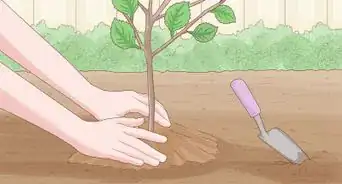





References
- ↑ April Jordan. Sustainability Specialist. Expert Interview. 22 September 2020.
- ↑ https://www.nrdc.org/stories/keep-your-devices-wasting-energy-and-money
- ↑ https://www.energy.gov/articles/top-11-things-you-didnt-know-about-saving-energy-home-summer-edition
- ↑ https://energysavingtrust.org.uk/energy-at-home/reducing-home-heat-loss/
- ↑ https://www.weforum.org/agenda/2022/02/gas-stoves-climate-change-study-methane/
- ↑ https://www.npr.org/2021/10/07/1015460605/gas-stove-emissions-climate-change-health-effects
- ↑ https://www.efficiencyns.ca/tip/11-tips-save-energy-bathroom/
- ↑ https://smarterhouse.org/dishwashing/energy-saving-tips
- ↑ https://www.cleanenergyresourceteams.org/your-old-refrigerator-energy-hog
- ↑ April Jordan. Sustainability Specialist. Expert Interview. 22 September 2020.
- ↑ https://sfenvironment.org/reduce-waste
- ↑ https://www.epa.gov/recycle/composting-home
- ↑ https://oceanservice.noaa.gov/ocean/earthday.html
About This Article

You can easily help save the environment at home by recycling your trash and reducing your utility bills. Turn off your electrical appliances, like computers, TVs, and sound systems, when you’re not using them, instead of just using their standby settings. During the colder seasons, consider turning your thermostat down a few degrees and wearing a warm sweater. This will help the environment and save you money too! If you have a little spare cash, consider getting your house fully insulated, which will reduce your heating bill. You can also wash your laundry on cold cycles to save a ton of energy. If you don’t already have separate baskets for your trash, consider getting one for recycling, which will prevent a lot of waste from going to landfill. For more tips, including how to change your travel routine to help save the environment, read on!
